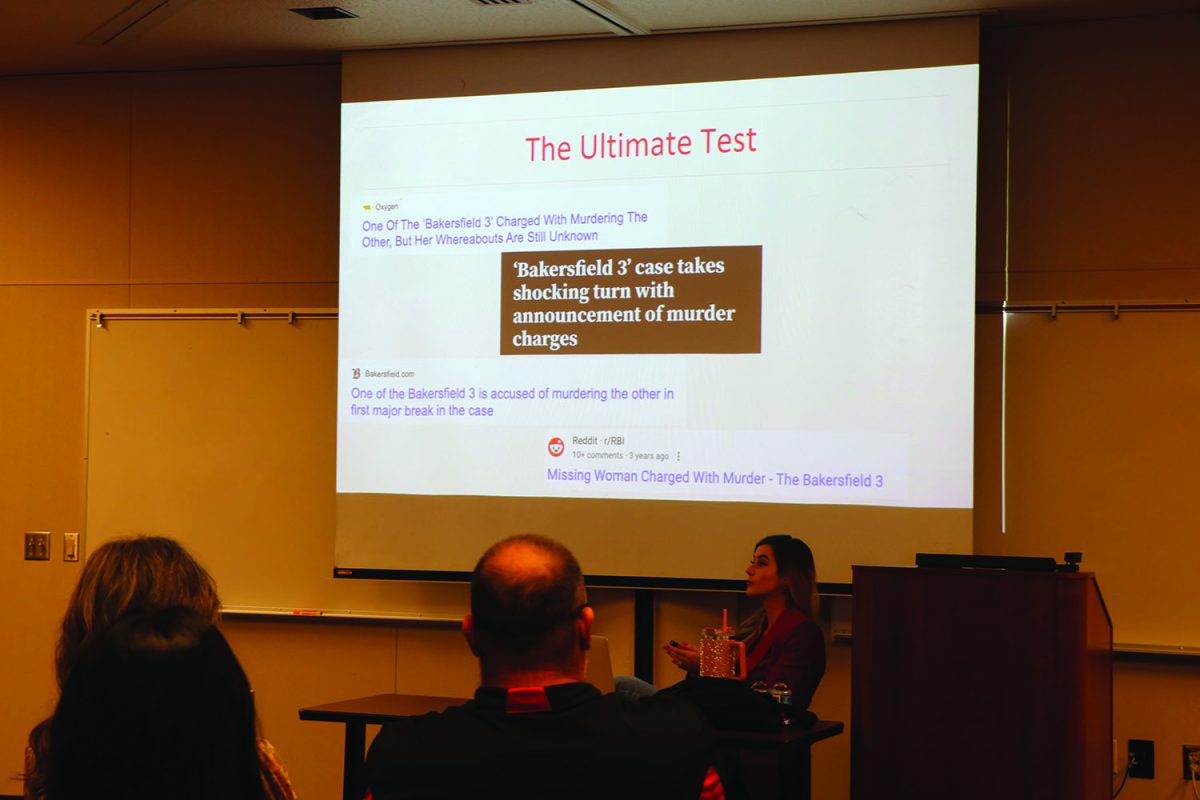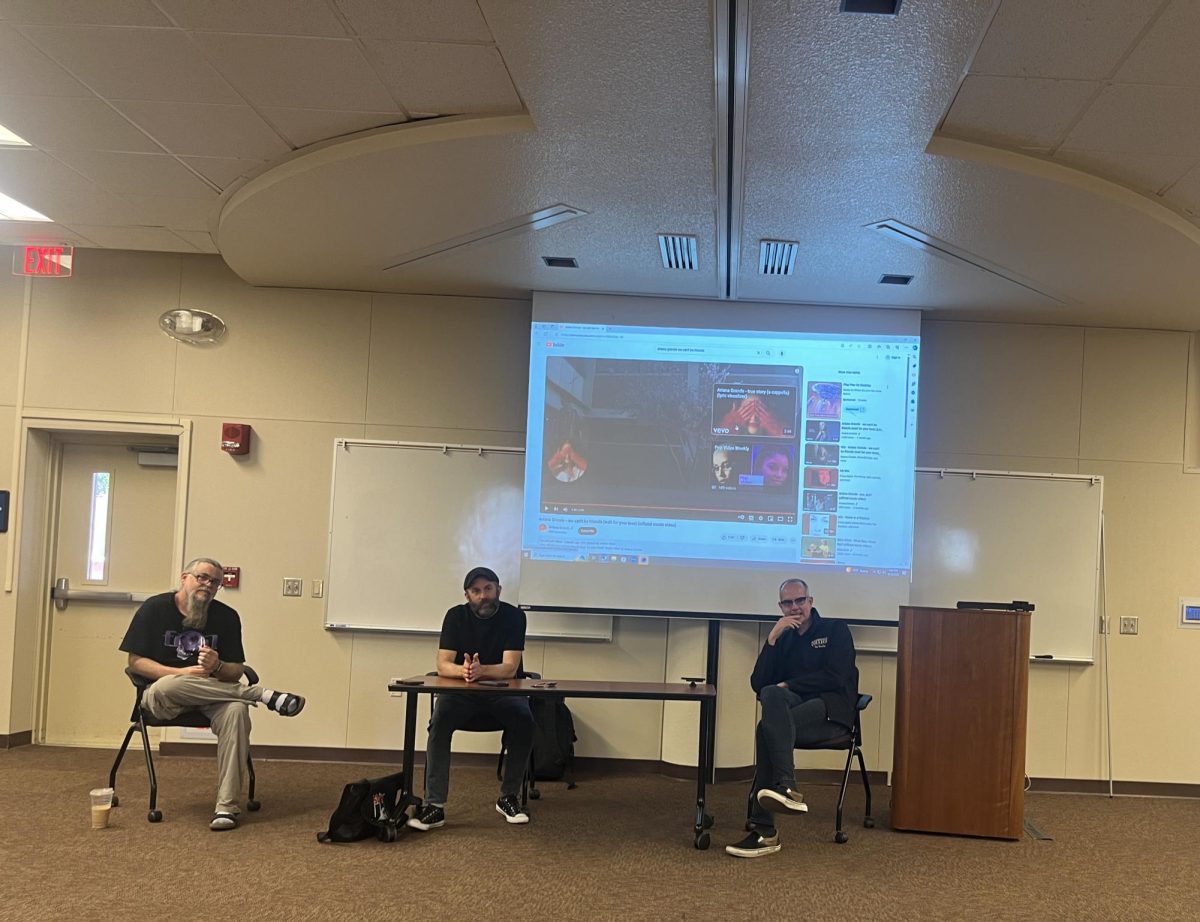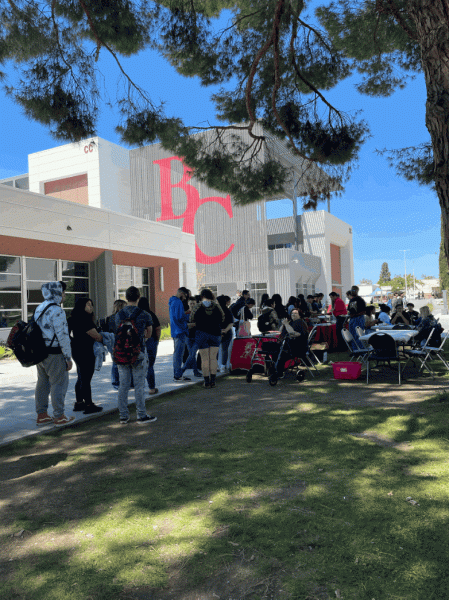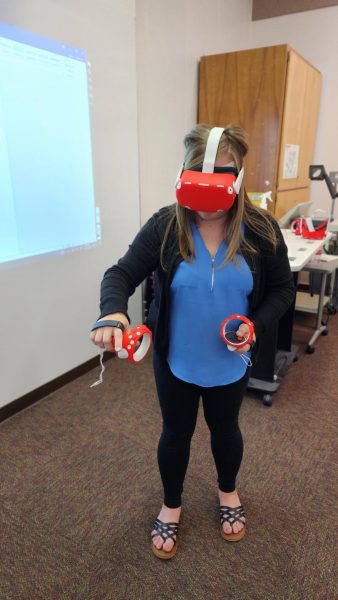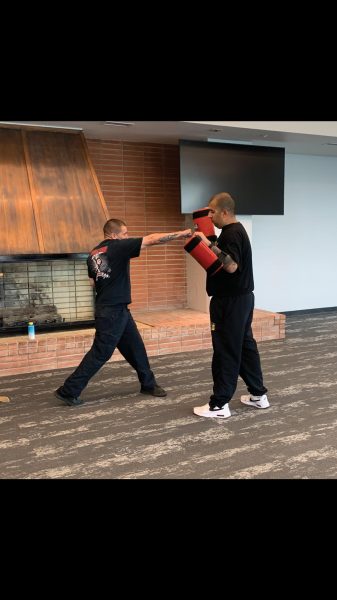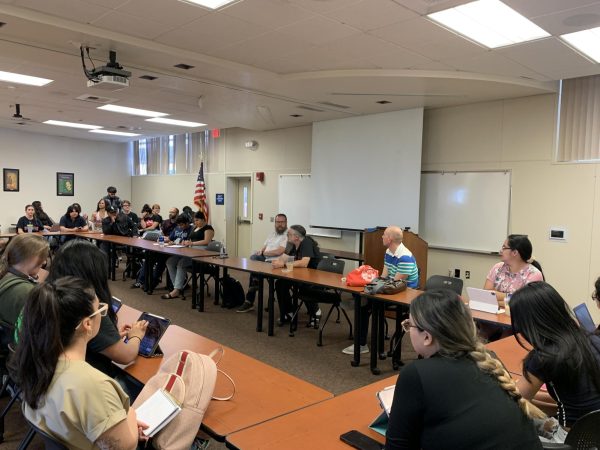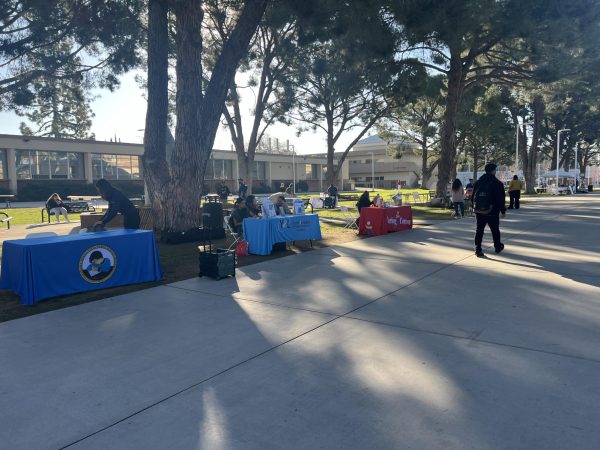Oral history for students at BC Delano Campus
April 4, 2018
The Bakersfield College Delano Campus hosted Dr. Patrick Fontes of California State University Fresno to speak on his oral history project, Chicano Legacy of Fresno County: Unjust Practices and Lethal Consequences, to Delano students on March 14. Here Fontes gave students a general overview of Mexican history in the United States and the California Central Valley, focusing primarily on the Fresno area.
Sponsored by Digital Delano, which archives local community history in Delano, The National Endowment for Humanities, the Cultural and Historical Awareness Program, and the Social Justice Institute of Bakersfield College, the oral history presentation emphasized the importance of preserving and telling the stories of Chicano, Latino and Mexican immigrants and their impact on California history.
BC history professor and project director of the Digital Delano, Oliver Rosales, invited Fontes to speak.
According to Rosales, he wanted to show his Delano students – a majority of which are of Mexican descent – the wealth of information and history that exist in California.
“There is power in narrative and whose talked out in history, if you can see yourself in the narrative, then you’ll want to invest yourself more in history,” said Rosales.
“That’s the whole point of Digital Delano and this presentation is to show our students and others their stories matter, and that there are accounts and information just waiting to be found.”
Fontes, A fourth-generation Chicano Fresnan himself, attended Fresno City College and CSU Fresno before receiving a full-ride scholarship to Sanford University, studying history with a focus on the, “Mexican American experience.”
“When I first started at Fresno State, I was studying ancient history, then I moved toward Spanish history and later the Mexican colonial period” said Fontes. “Before I knew it, I was studying Mexican immigration to America and I quickly connected my studies to my own family, as soon as I made that connection I was hooked.”
Among his finding included criminal court cases comparing the treatment of Mexicans and other European groups, interviewing those who participated in the Farm Workers Movement, and even the presence of the Ku Klux Klan in Fresno County.
“Fresno County was settled by former Confederates from the South who moved out to California after the Civil War,” explained Fontes. “Unlike other settlements in California at the time like Los Angeles or San Jose that were built as Spanish settlements, Fresno was settled by Anglos for Anglos.”
Fontes continued by pointing out that despite these turbulent times in history, much of it is never given any more than a footnote in a most school textbooks.
“A lot of this history is brushed under the rug or ignore completely,” said Fontes. “What I’m trying to achieve with my work is to raise awareness of Chicano history and promote further research within the Central Valley so that one day Mexican Americans in the United State can look in a textbook and see, not a bullet point, but a narrative that can be a major part of the American tapestry.”


